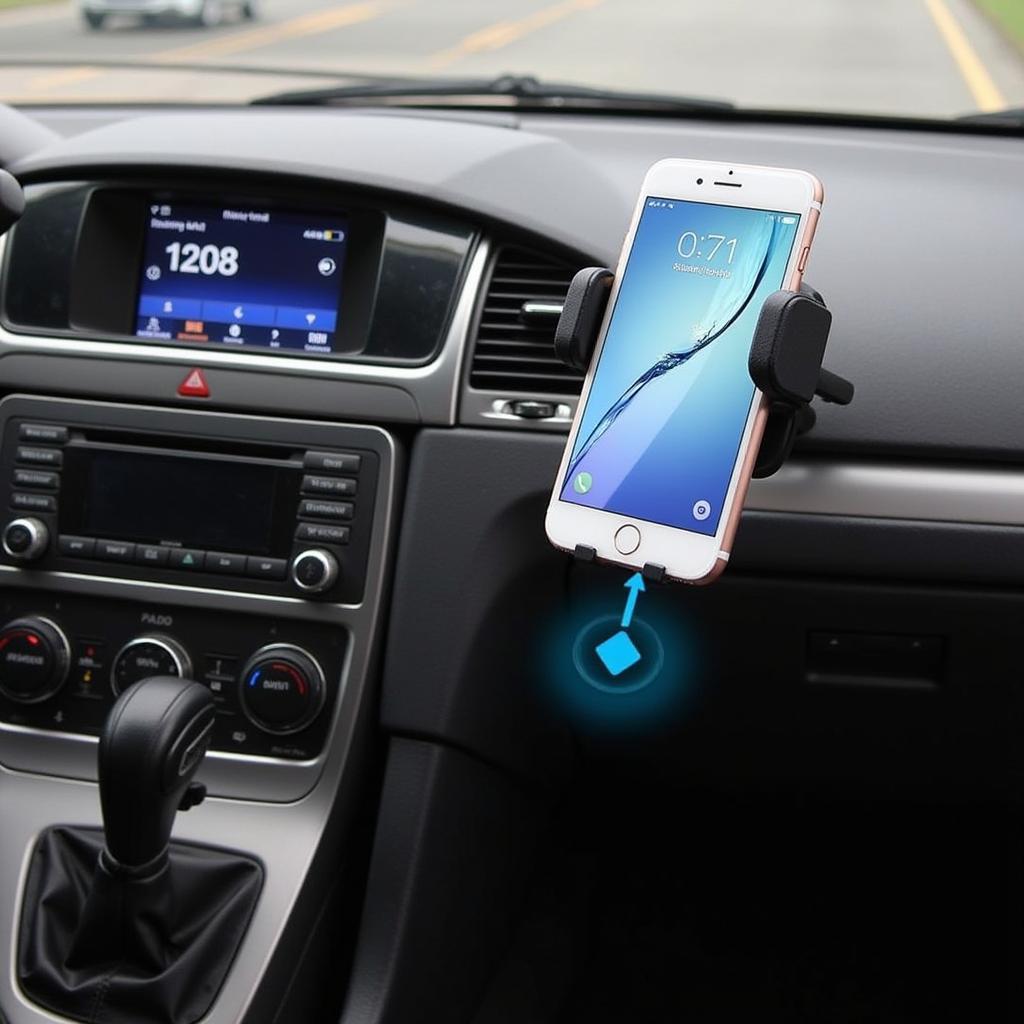HD car radio Bluetooth technology has revolutionized in-car entertainment and communication, offering seamless wireless audio streaming and hands-free calling. However, like any technology, it can encounter occasional hiccups. This guide delves deep into common HD car radio Bluetooth issues, providing expert solutions, tips, and tricks for a flawless in-car audio experience. If you’ve ever struggled with pairing, audio quality, or connectivity, this comprehensive resource is your go-to guide.
Bluetooth connectivity has become an essential feature in modern vehicles, allowing drivers to safely enjoy their favorite music and make hands-free calls. While usually reliable, Bluetooth can sometimes be problematic, leading to frustration and a less enjoyable driving experience. This article will cover everything you need to know to troubleshoot and optimize your HD car radio Bluetooth connection. We’ll address common issues such as pairing difficulties, choppy audio, dropped calls, and more. signs that car battery is going bad can sometimes cause unexpected behavior in your car’s electronics, including the Bluetooth system.
Common HD Car Radio Bluetooth Problems
Understanding the root cause of your Bluetooth issues is the first step towards finding a solution. Here are some of the most frequently encountered problems:
- Pairing Issues: Your phone and car radio simply refuse to connect, leaving you stranded in silence.
- Audio Quality Problems: You’re connected, but the audio is distorted, choppy, or too quiet.
- Dropped Connections: The Bluetooth connection randomly drops mid-call or while streaming music.
- Incompatibility Issues: Your phone or car’s Bluetooth version is outdated and not compatible.
- Interference: Other electronic devices in your car may be interfering with the Bluetooth signal.
Troubleshooting HD Car Radio Bluetooth Issues: A Step-by-Step Guide
Here’s a practical guide to resolving common Bluetooth woes:
- Check Compatibility: Ensure your phone and car radio both support the same Bluetooth profiles. Consult your car’s manual and your phone’s specifications for this information.
- Restart Both Devices: Sometimes, a simple restart can resolve software glitches. Turn off your phone and car’s infotainment system, wait a few minutes, and then turn them back on.
- Delete Existing Pairings: Remove the pairing from both your phone and car radio’s saved devices list and try pairing them again from scratch.
- Check for Interference: Turn off other Bluetooth devices in your car, such as headphones or smartwatches. Also, ensure that devices like GPS navigators aren’t interfering.
- Update Software: Make sure your phone’s operating system and car’s firmware are up-to-date. Outdated software can cause compatibility issues.
- Consult Your Car’s Manual: Your car’s manual is a valuable resource for troubleshooting specific Bluetooth issues related to your make and model.
- Contact the Manufacturer: If all else fails, contact your car manufacturer or phone manufacturer for further assistance.
Optimizing Your HD Car Radio Bluetooth Connection
Once you’ve resolved any existing issues, follow these tips to optimize your Bluetooth connection for the best possible performance:
- Position Your Phone Properly: Place your phone in a location where it has a clear line of sight to the car’s Bluetooth receiver. Avoid putting it in the glove compartment or under the seat.
- Minimize Interference: Keep other electronic devices away from your phone and the car’s Bluetooth antenna.
- Adjust Volume Levels: Optimize the volume levels on both your phone and car radio for clear audio.
- Use a High-Quality Bluetooth Adapter (If Necessary): If your car doesn’t have built-in Bluetooth, consider investing in a high-quality Bluetooth adapter.
John Smith, a leading automotive electrical engineer specializing in remote diagnostics, emphasizes, “A stable Bluetooth connection is crucial for both entertainment and safety. Regular software updates and minimizing interference are key to a seamless experience.” He adds, “Don’t underestimate the impact of your car battery’s health on your Bluetooth system. signs battery is going bad in car can manifest in various ways, including Bluetooth connectivity issues.”
 HD Car Radio Bluetooth Optimization Techniques
HD Car Radio Bluetooth Optimization Techniques
Conclusion
HD car radio Bluetooth is a fantastic feature, but troubleshooting occasional issues is part of the ownership experience. By following the tips and tricks outlined in this guide, you can resolve common problems, optimize your connection, and enjoy a truly seamless in-car audio experience. Remember to keep your software updated and minimize interference for optimal performance. Experiencing issues that seem unrelated to Bluetooth? You might want to check for signs your battery is going bad. A failing battery can cause all sorts of electrical gremlins.
FAQ
-
Why won’t my phone connect to my car’s Bluetooth? Check compatibility, restart both devices, and delete existing pairings.
-
How can I improve my HD car radio Bluetooth audio quality? Adjust volume levels, minimize interference, and position your phone properly.
-
Why does my Bluetooth connection keep dropping? Check for interference, update software, or consult your car’s manual.
-
My car doesn’t have Bluetooth. What are my options? Consider using a high-quality Bluetooth adapter.
-
Could a failing battery impact my HD car radio Bluetooth performance? Absolutely. signs my battery is going bad can indeed affect various electrical systems, including Bluetooth.
-
How can I determine if my phone and car radio are Bluetooth compatible? Refer to your car’s manual and your phone’s specifications to check for compatible Bluetooth profiles.
-
Who should I contact if I can’t resolve my Bluetooth issues? Contact your car manufacturer or phone manufacturer for technical support.
